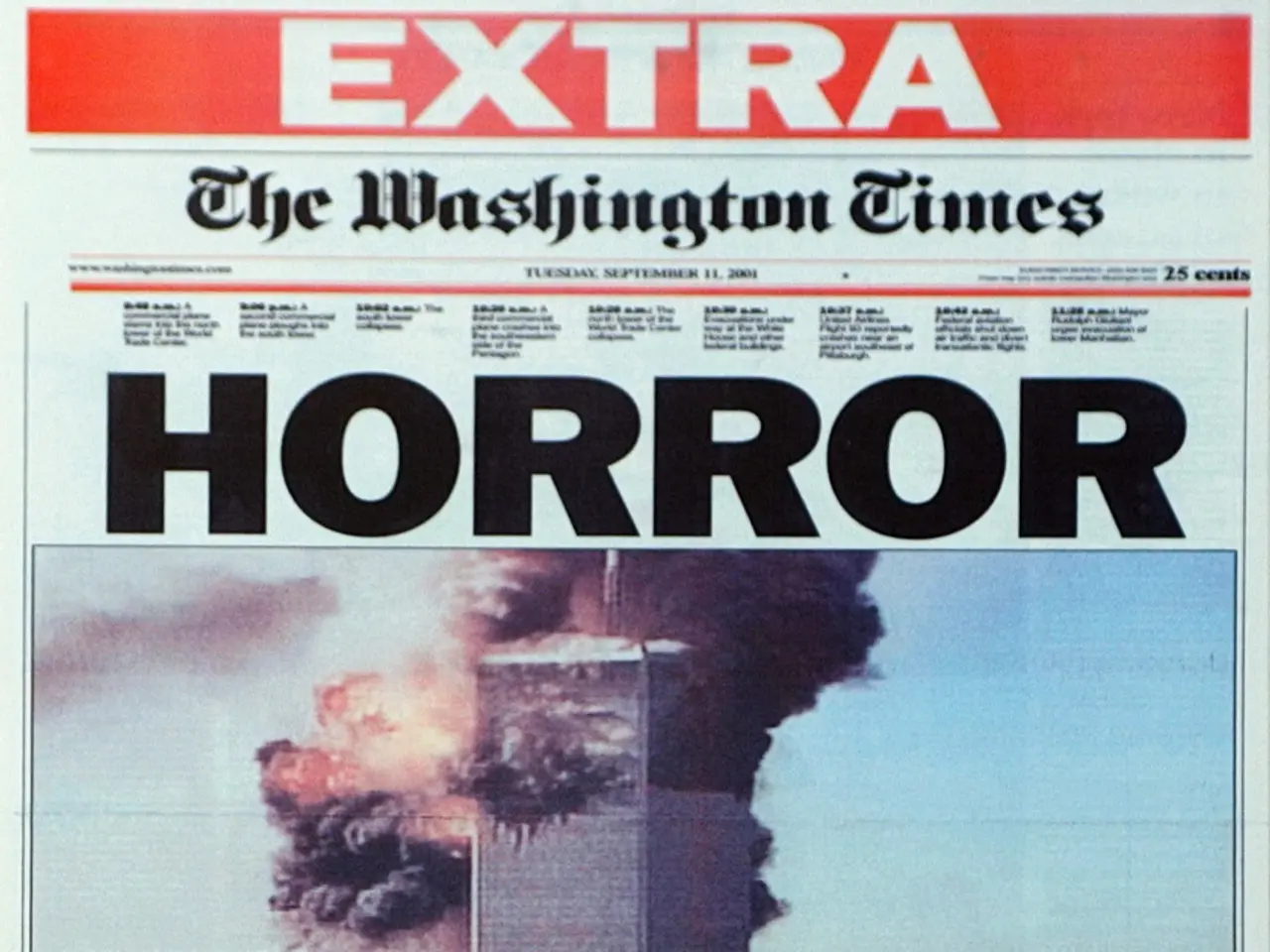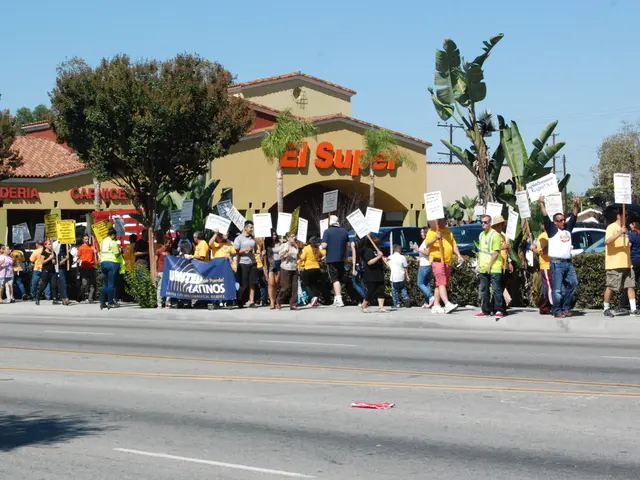Palestinians suffer casualties and face food scarcity as Israeli bombings strike Gaza, according to officials' reports.
In the midst of a severe humanitarian crisis, Israel has initiated the initial stages of a large-scale military operation to occupy Gaza City, calling up 50,000 to 60,000 reservists as part of this campaign. The operation, codenamed "Gideon's Chariots II," comes despite Hamas's recent announcement of accepting a ceasefire and hostage-release proposal brokered by Egypt and Qatar, based on a U.S. framework [1][5].
The latest round of indirect talks in Qatar ended in deadlock in late July. Since then, Israeli forces have been bombarding eastern areas of Gaza City overnight, resulting in the deaths of at least 11 people. Witnesses and medics reported that overnight bombardments killed seven people in Gaza City's Zeitoun suburb and another four in an apartment building in the city centre [6]. In the past 24 hours, 89 Palestinians have been killed by Israeli fire.
Key issues preventing a ceasefire include the hostage situation, Hamas's disarmament, and political control in Gaza. Israel demands the return of all hostages, both alive and deceased, before any ceasefire is accepted [2][3]. There is concern that Hamas would use hostages as leverage to prolong its control or extract concessions [2]. Israel also insists on the disarmament of Hamas as a precondition for peace and envisions dismantling Hamas's governing apparatus in Gaza. Hamas's survival and control are key sticking points in negotiations [2][3].
Israel demands establishing Israeli security control over Gaza and installing an administration separate from both Hamas and the Palestinian Authority [3]. Hamas is reluctant to cede governing authority. The humanitarian crisis in Gaza, caused by a full Israeli blockade, further complicates ceasefire negotiations. Gaza is suffering widespread displacement, starvation risk, and lack of essential supplies [4].
Despite these obstacles, Hamas leader Khalil al-Hayya is due in Cairo for talks to revive a US-backed ceasefire plan [7]. The Hamas official announced that the Islamist movement is ready to relinquish Gaza governance to a non-partisan committee, but is not willing to relinquish its arms before a Palestinian state is established [8]. Israeli prime minister Benjamin Netanyahu's coalition allies want an outright Israeli takeover of all of Gaza [9].
Foreign ministers of 24 countries, including Ireland, Britain, Canada, Australia, France, and Japan, have urged Israel to allow unrestricted aid into the enclave [10]. The Israeli military is investigating reports of the latest bombardments and claims to take precautions to mitigate civilian harm [6]. Israel disputes the malnutrition fatality figures reported by the health ministry in the Hamas-run enclave [5].
As the conflict remains highly volatile, both humanitarian and security concerns are deeply entangled in negotiations. The plan to expand military control over Gaza has increased a global outcry over the widespread devastation, displacement, and hunger afflicting Gaza's 2.2 million people [4]. The war between Israel and Hamas, which began on October 7, 2023, has resulted in the death of 1,200 people and the capture of 251 hostages, according to Israeli figures [11].
References:
- BBC News
- Al Jazeera
- The Guardian
- The New York Times
- Haaretz
- Reuters
- AP News
- CNN
- The Jerusalem Post
- The Washington Post
- The Times of Israel
- The ongoing war-and-conflicts between Israel and Hamas, such as Operation "Gideon's Chariots II," create complications in a general news narrative that also involves politics, given the pressing issues like hostage situations, disarmament, and political control in Gaza, which are preventing a ceasefire.
- The international community, including foreign ministers from countries like Ireland, Britain, Canada, Australia, France, and Japan, have expressed their concerns about the impact of these political issues on the humanitarian crisis in Gaza, urging Israel to allow unrestricted aid into the enclave to alleviate widespread devastation, displacement, and hunger affecting its 2.2 million inhabitants.




